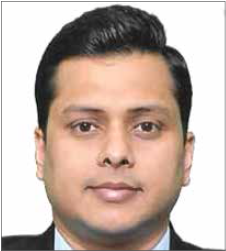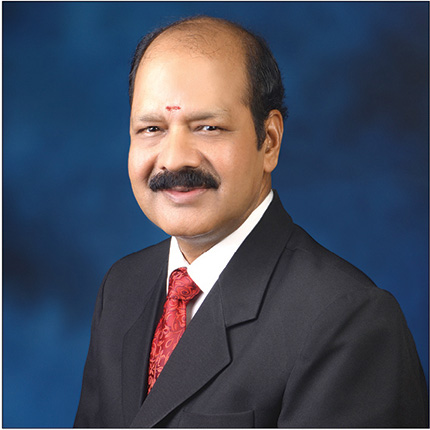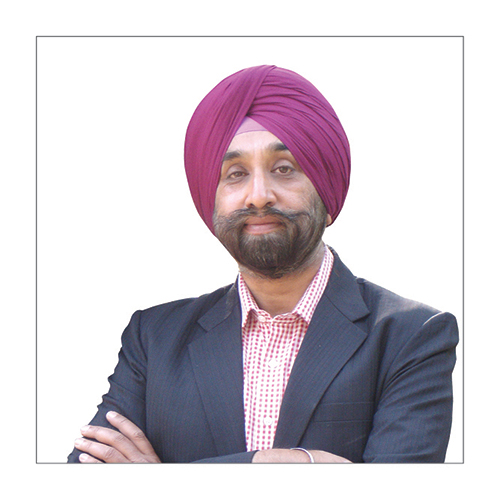
 Startups are providing a great stimulus to various stakeholders in the Indian healthcare industry, signifying a new beginning based on disruptive thinking, convergence and cooperation to improve healthcare delivery, writes Vivek Ratnakar of Elets News Network (ENN).
Startups are providing a great stimulus to various stakeholders in the Indian healthcare industry, signifying a new beginning based on disruptive thinking, convergence and cooperation to improve healthcare delivery, writes Vivek Ratnakar of Elets News Network (ENN).
As India aspires to lead the world, the startup ecosystem in the country has seen a new spark of energies impacting almost every sector of the economy. Their impact in improving health delivery system is all the more apparent, as it has already started to yield fruits. This has pushed the government and health industry to see healthcare startups in a new light “ where they are the torch-bearers of new hope in helping India achieve its goal of healthcare for all.

The health startups have been quick to leverage technology to offer out-of-box disruptive solutions to the Indian masses, now empowered by smart phones and better internet connectivity.
The importance of healthcare startups in India was recently bolstered during the Health Tech India-2017, organised by the Confederation of Indian Industry concurrently with the 22nd edition of International Engineering and Technology Fair, from February 3-5. The startups which set up their stalls at the first comprehensive show dedicated to health technologies in the country was inaugurated by Faggan Singh Kulaste, Minister of State for Health and Family Welfare.
It served as a convergence point for various health technology companies to showcase their innovations to provide a fillip to the healthcare sector, which is undergoing a transformation of sorts to make healthcare more inclusive. It also served as a hunting ground for venture capitalists and big investors looking to fund promising innovative ideas that can help them grow their capital at faster rates than any other sector — highlighting the potential of healthcare startups in the country.

Given that technology holds the key to deliver quality healthcare to people in a country like India where close to 70 per cent of the people live in rural areas, the prominence of startups in disruptive technologies like telemedicine, technology apps based on mobile telephony underscores that they can, to a great extent, help India in achieving universal healthcare in a relatively shorter time-frame.
But how do startups look at governmental push in helping them gain strength.
The last budget saw (Finance Minister) Arun Jaitley announcing a slew of tax cuts and commitments for easing the clearances. The last budget was successful in establishing the commitment of the current government to the startup ecosystem of the country, said Pawan Gupta, Co-founder, Curofy, a Delhi-based health tech startup which has emerged as one of Indias largest communities of verified doctor networking platform.
In 2016, the Indian healthcare tech startups showed traction with 73 deals worth over $113 million struck, highlighting the future potential of disruptive thinking in healthcare delivery.
Keeping that in mind, the government in the Budget 2017-18 did not disappoint Indian startups. Being a startup we are happy to hear that government has decided to relax the income tax liabilities applied on startups. The profit deduction period for entrepreneurial juggernauts has also been increased from the previous three out of five years. The startups can now claim 100 percent deduction of profits for three out of the first seven years, said Mudit Vijayvergiya, another Co-founder of Curofy.
Reflecting on the incentives provided by the government to healthcare startups, Abhishek Dwivedi, Co-founder, Alternacare, said, As a startup we appreciate the initiative took by the government to relax the income tax liabilities applied on startups. The profit deduction period for entrepreneurs has also been increased from the previous three out of five years. The 100 per cent deduction of profits for three out of the first seven years which can be claimed easily is a great step.
As per the experts, the government plans to convert 1.5 lakh health sub-centres into health wellness centres which would surely grow the preventive care inclination in the country. A large chunk of health tech startups are in preventive healthcare space and the step would further boost their growth.
Another move by the government — the push towards digital payments, (by making online transactions tax free) “ would bring more people to consume internet and hence it would support the entrepreneurs solving inefficiencies in healthcare, food, finance, retail, supply chain, etc using technology. Not only this, using BHIM app, people with no credit debit cards can also transact using this app. This move is also a boon in the startup ecosystem by the government, said Dwivedi.
Given that technology holds key to delivering quality healthcare to people in a country like India where close to 70 per cent of the people live in rural areas, the prominence of startups in disruptive technologies like telemedicine, technology apps based on mobile telephony underscores that they can, to a great extent, help India in achieving universal healthcare in a relatively shorter time-frame
 Besides startups in health tech sector, there is also a great scope for startups in research and development (R&D), in order to evolve molecules and drugs that are relevant to Indian conditions, according to Dr Soumya Swaminathan, Director General, Indian Council of Medical Research (ICMR).
Besides startups in health tech sector, there is also a great scope for startups in research and development (R&D), in order to evolve molecules and drugs that are relevant to Indian conditions, according to Dr Soumya Swaminathan, Director General, Indian Council of Medical Research (ICMR).
Development of a molecule is not only a painstaking affair but costly as well. Multinational corporations can easily fund such projects that cost several billion dollars. That is not the case with Indian industry and laboratories, where R&D takes a back seat or hamstrung by lack of funds. Imaginative schemes should be drawn up to address these issues in a cost effective manner.
Some of pharma companies or start up can take up early development molecules and drugs and once it passes certain stage they can collaborate with larger Indian companies or even multinationals since discovery of new molecules is fraught with very high risk, she opined.
Despite advances in sciences, there are gaps between biology and technology. Critical medical care for patients suffering from noncommunicable diseases like diabetes, cancer, cardio-vascular diseases etc. can also be addressed by health technology startups.
Be a part of Elets Collaborative Initiatives. Join Us for Upcoming Events and explore business opportunities. Like us on Facebook , connect with us on LinkedIn and follow us on Twitter , Instagram.












